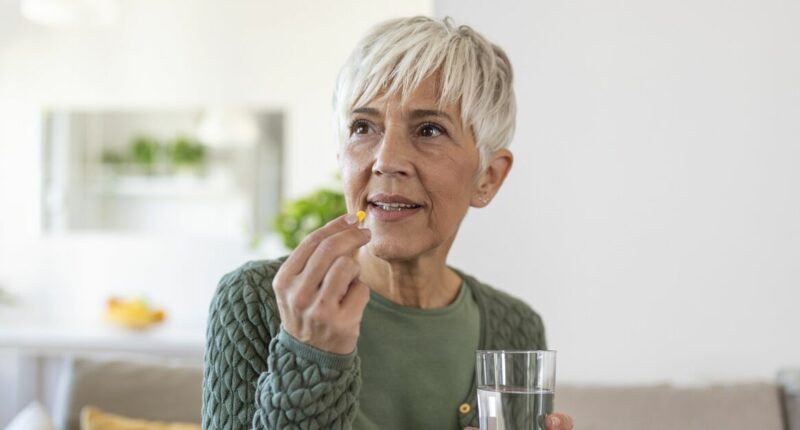Share this @internewscast.com
As the colder months set in, the NHS has issued an important reminder to people across the UK about the necessity of a daily supplement. From October through March, it recommends adding a particular vitamin to your routine to maintain optimal health.
Recently, the NHS took to the social media platform X to advise the public about the need for vitamin D supplements during this time of year. While we typically rely on sunlight to produce sufficient vitamin D, the reduced daylight in autumn and winter presents a challenge.
The NHS posted: “From October to March, sunlight is not enough for us to produce the necessary amount of vitamin D. To maintain healthy bones and muscles, it is advisable to take a daily supplement of 10 micrograms.” They also noted that vitamin D supplements are widely available at most pharmacies and retailers.
The NHS website further elaborates on the government’s advice, which suggests that “everyone” should consider a daily intake of vitamin D during the colder months. It also provides guidance on the appropriate dosage.
According to the NHS, “Children aged one and above, as well as adults, should ensure they get 10 micrograms (mcg) of vitamin D daily. This recommendation includes pregnant and breastfeeding women, as well as individuals at risk of vitamin D deficiency.”
“Children from the age of one year and adults need 10 micrograms (mcg) of vitamin D a day,” the NHS said. “This includes pregnant and breastfeeding women, and people at risk of vitamin D deficiency.
“Babies up to the age of one year need 8.5 to 10 micrograms of vitamin D a day.” On the labels of supplements this may be written as “mcg” or “μg”.
Or they may use international units (IU) . One microgram of vitamin D is equal to 40 IU – so you should look for 400 IU.
There are risks that come with taking too much vitamin D. “For most people”, 10 micrograms will be enough.
The NHS warned: “Do not take more than 100 micrograms (4,000 IU) of vitamin D a day as it could be harmful.
“This applies to adults, including pregnant and breastfeeding women and the elderly, and children aged 11 to 17 years.
“Children aged one to 10 years should not have more than 50 micrograms (2,000 IU) a day. Infants under 12 months should not have more than 25 micrograms (1,000 IU) a day.”
On top of this, some people have medical conditions that mean they may not be able to safely take as much. “If in doubt, you should consult your doctor,” the NHS said.
Find out about the symptoms you need to watch out for and get health advice with our free health newsletter from the Daily Express
“If your doctor has recommended you take a different amount of vitamin D, you should follow their advice.”
Other sources of vitamin D
As well as thought sunlight and supplements it is possible to get vitamin D through your diet. This includes through:
- Oily fish – such as salmon, sardines, trout, herring or mackerel
- Red meat
- Egg yolks
- Fortified foods – such as some fat spreads and breakfast cereals
- Liver (but you must avoid liver if you’re pregnant)
For more information, visit the NHS website here.












